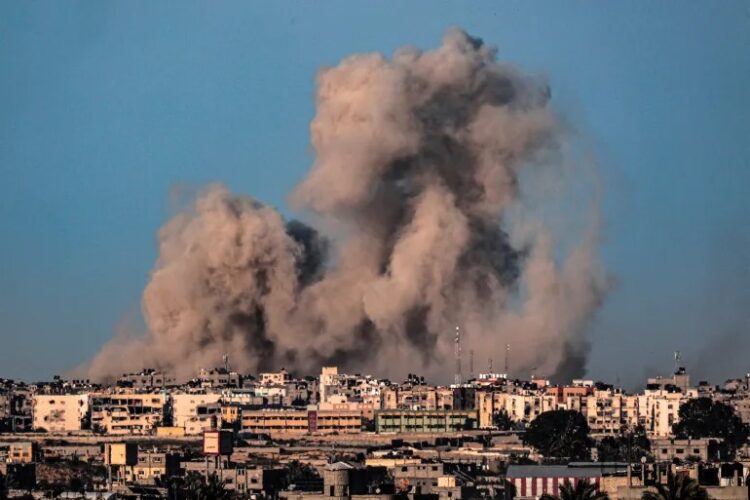The Israeli military’s actions in central Gaza, including the shelling of residential homes, have resulted in the unfortunate loss of at least 40 Palestinian lives, as reported by local authorities. In response to the situation, the Gaza government media office holds both the US administration and Israel accountable for what they term “ongoing crimes.” They call on the international community to bring an end to what they describe as a “war of extermination” against civilians.
The UN agency for Palestinian refugees, UNRWA, finds itself at a critical juncture with Western donors freezing funds, citing “breaking point” conditions during a time of “unprecedented humanitarian needs in Gaza.” Complicating matters further, Israeli forces have re-entered the besieged Nasser Hospital in Khan Younis, adding to the challenges faced by the medical center.
Statistics reveal a grim toll, with at least 29,410 Palestinians killed and 69,465 injured in Israeli attacks on Gaza since October 7. The revised death toll in Israel from the same period stands at 1,139. China presents a perspective at the International Court of Justice, asserting that Palestinian “use of force to resist oppression is an inalienable right” and should not be equated with terrorism.
Israeli airstrikes in Rafah have resulted in casualties, with at least six people killed, according to reports from the Palestinian state news agency Wafa. Another strike in the Yabna camp in central Rafah caused damage but resulted in no fatalities.
US President Joe Biden emphasizes that the “overwhelming majority of Palestinians are not Hamas” and points out that Hamas does not represent the entire Palestinian people. However, reports suggest growing friction between Biden and Israeli Prime Minister Benjamin Netanyahu regarding civilian casualties in Gaza, Israeli restrictions on humanitarian aid, and Netanyahu’s opposition to a Palestinian state.
Despite policy differences, the flow of US weapons to the Israeli military continues, with Biden seeking an additional $14 billion in aid for Tel Aviv. In a meeting between Israel’s Defence Minister Yoav Gallant and Brett McGurk, Biden’s top Middle East adviser, Israel announces an expansion of negotiators for captives. This move is seen in the context of pressures on Israel by the US administration to resume negotiations and address sticking points.
The complexity of the situation is evident in Prime Minister Benjamin Netanyahu’s decision to decline sending an Israeli delegation for a second day of meetings in Cairo, drawing concern from the Israeli public and families of captives. The outcome of ongoing talks remains uncertain, but the Israeli delegation is poised to present their case and potentially offer concessions to secure a deal. The backdrop of these developments suggests a delicate balance between international pressure, security concerns, and diplomatic negotiations in the region.

















Comments